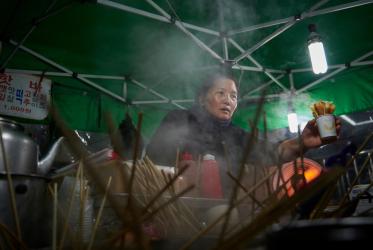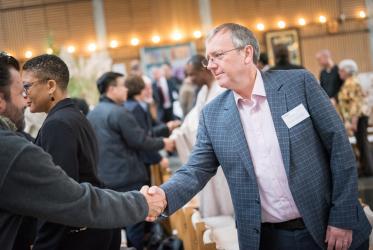Displaying 1 - 20 of 27
CCIA meets in Brisbane with focus on Pacific regional priorities
19 February 2020
Worldwide prayer campaign begins to end 70-year Korean War
06 February 2020
WCC celebrates “living fellowship”
20 June 2018
Asian church leaders exchange ideas on diaconia
19 December 2017
The motor engineers of the ecumenical movement
18 September 2017
G7 must address famine
22 May 2017
Plans for 2017 decided by WCC Executive Committee
01 December 2016
New Executive Committee members elected in Trondheim
28 June 2016
WCC Executive Committee speaks out on migrant crises
12 June 2015










